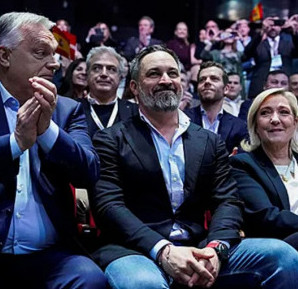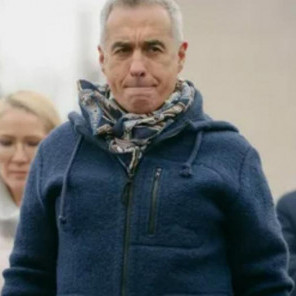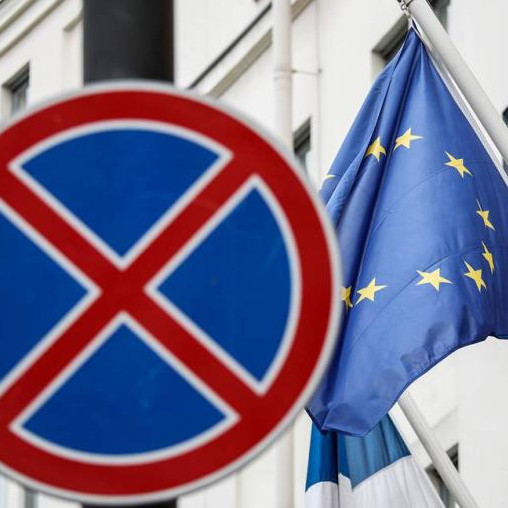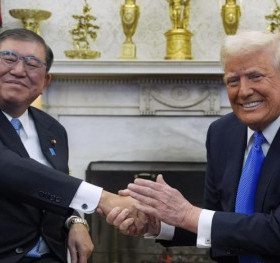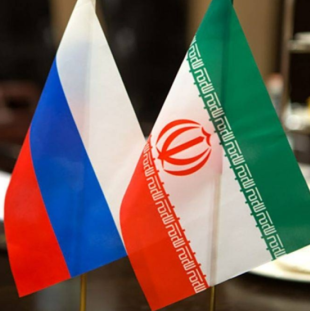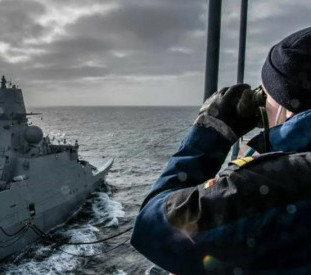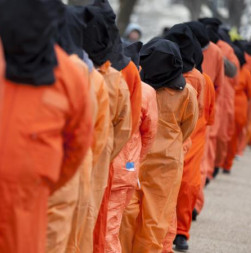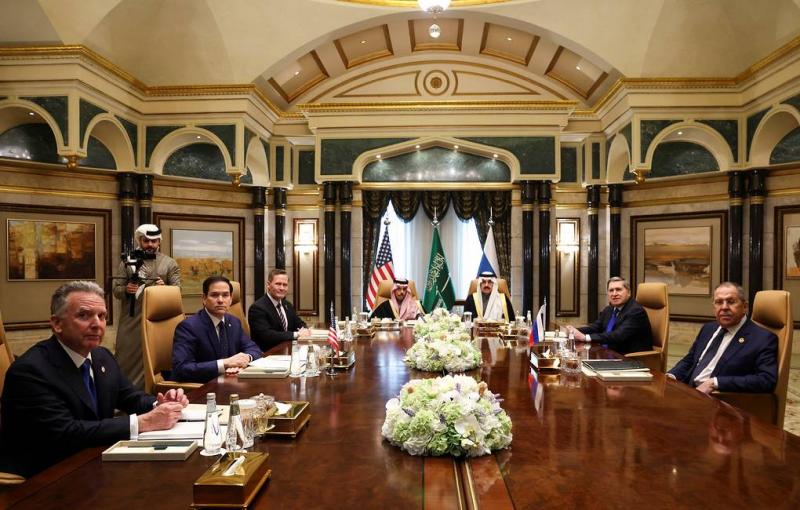
Senior US and Russian officials convened in Riyadh for the initial direct bilateral talks since the onset of Russia's special military operation; Kiev and Paris maintain the need for strong security guarantees for Ukraine; and the Ukrainian strike on the Caspian Pipeline Consortium impacts US corporate interests and assets. These stories topped Wednesday’s newspaper headlines across Russia, according to TASS news agency.
Media: US-Russia delegations hold talks in Riyadh – initial takeaways
High-ranking officials from the United States and Russia gathered in Riyadh for the first direct bilateral talks since the onset of Russia’s special military operation. The primary objective of the meeting was to conduct diplomatic "reconnaissance" ahead of potential negotiations on Ukraine and to explore ways to restore US-Russia channels of communication. The five-hour discussions, while yielding no major progress on Ukraine, marked an initial step toward reviving dialogue between Washington and Moscow, independent of the ongoing conflict. A key development was an agreement to restore pre-crisis levels of diplomatic personnel at both countries’ embassies, enabling continued bilateral talks.
Representing Moscow were Presidential Aide for Foreign Policy Yury Ushakov, Foreign Minister Sergey Lavrov, and Director of the Russian Direct Investment Fund (RDIF) Kirill Dmitriev. Their US counterparts included Secretary of State Marco Rubio, National Security Advisor Mike Waltz, and Special Envoy for Middle East Peace Steven Witkoff.
Lavrov and Rubio also agreed to address broader geopolitical challenges of mutual concern. While details remain undisclosed, discussions likely touched upon strategic stability, particularly in light of the termination of the Intermediate-Range Nuclear Forces (INF) Treaty in 2019.
Additionally, both delegations considered the groundwork for a potential summit between Presidents Vladimir Putin and Donald Trump in Riyadh. To this end, Washington and Moscow pledged to work toward creating the necessary conditions for such a high-level dialogue, emphasizing a mutual understanding of each other’s strategic interests.
The talks between Russia and the US should be seen as an initial attempt to "gauge the situation" in search of common ground, Senior Fellow at the Institute of the US and Canada of the Russian Academy of Sciences Pavel Koshkin told Vedomosti.
The discussions in Riyadh, which resulted in agreements on the creation of working groups and the resumption of regular diplomatic functions in Washington and Moscow, indicate a positive shift in bilateral relations, Lev Sokolshchik, Expert at the Center for Comprehensive European Studies and International Relations at the Higher School of Economics told Vedomosti.
Dmitry Suslov, specialist at the Russian International Affairs Council, told the newspaper that the high-level talks in Riyadh marked a significant moment, as the US did not outrightly reject Russia’s concerns but recognized them in the discussions.
The so-called "Zelensky factor" poses a significant barrier to the initiated negotiation process, potentially slowing its momentum, Izvestia writes. Zelensky continues to adopt a confrontational stance toward Moscow, showing no indication of readiness for a productive dialogue.
"Zelensky is undoubtedly a complicating factor, and there are numerous reasons why he could delay any potential agreement. The Ukrainian side may even attempt to disregard Russian-US accords altogether, instead relying on support from Washington’s European allies. However, the key question remains: can Europe fully replace the United States as Kiev’s primary provider of military and economic assistance?" Andrey Kortunov, Scientific Director of the Russian International Affairs Council, told Izvestia.
Europe’s role in resolving the Ukrainian crisis remains uncertain. While Washington does not rule out the eventual involvement of EU countries given their sanctions against Moscow, Russia firmly rejects this notion. Deputy Foreign Minister Alexander Grushko emphasized that the European Union will have no involvement in the upcoming talks on Ukraine.
Nezavisimaya Gazeta: Zelensky supports EU’s commitment to security guarantees for Ukraine
Kiev and Paris share a unified stance on the necessity of strong security guarantees for Ukraine, Vladimir Zelensky said following a conversation with French President Emmanuel Macron after an emergency summit in Paris. NATO Secretary General Mark Rutte noted that EU nations had demonstrated their willingness to take charge in providing such guarantees. However, representatives of key European powers expressed highly conflicting views on the matter. Russian analysts told Nezavisimaya Gazeta that the presence of foreign troops on Ukrainian soil remains unequivocally unacceptable for Moscow.
While visiting the region near Riyadh - where Russian and US delegations began their first negotiations since the onset of Russia’s special military operation on Tuesday - Zelensky also discussed the Paris summit’s outcomes with Macron. Speaking to journalists, he emphasized that Ukraine and France are in agreement in their belief that Kiev requires robust security assurances. Both parties agreed to collaborate efforts to facilitate a lasting and reliable peace, he stated. Zelensky further warned that a "Fragile ceasefire" would merely serve as a prelude to renewed military action by the Russian Armed Forces against Ukraine and other European nations.
"Clearly, the Paris summit was a continuation of the discussions held at the Munich Conference. At the same time, it functioned as a form of mass reassurance for Ukraine, where many began voicing concerns that the United States had abandoned it. However, Washington’s approach is likely more nuanced, factoring in Ukrainian interests as well. It is best to let the dust settle after the events in Munich and Paris before drawing conclusions," head of the Center for Political Information Alexey Mukhin told the newspaper.
Meanwhile, he cautioned against hasty speculation, particularly regarding the US position, emphasizing the importance of monitoring both official statements and, more critically, the actions of US representatives. As negotiations progress, regardless of their location, the formation of a coherent negotiating stance among all key stakeholders, including EU representatives, will gradually become evident, Mukhin predicted.
Commenting on proposals from European capitals regarding the potential deployment of peacekeeping contingents, he dismissed such discussions as largely hypothetical. "Russian leadership has made it explicitly clear that any deployment of NATO member-state forces on Ukrainian territory would constitute a legitimate military target for the Russian Armed Forces," the expert concluded.
Vedomosti: Ukrainian strike on CPC affects US corporate interests and assets
The Ukrainian drone strike on February 17, 2025, inflicted significant damage on the Kropotkinskaya oil pumping station, a critical node within the Caspian Pipeline Consortium (CPC) network. The assault resulted in the damage to a gas turbine unit, while two transformers, filters, a fire suppression system, and the station's roof were destroyed. On February 19, Transneft, one of CPC’s shareholders, confirmed the facility had been shut down. According to CPC experts, recovery efforts are expected to take between six to eight weeks, potentially limiting Kazakhstan’s oil export capacity by approximately 30% during this period, Vedomosti reports.
Stanislav Pritchin, head of the Central Asia sector at the Institute of World Economy and International Relations, described the attack as an unprecedented event. He noted that while reduced oil transit through Russian territory would lead to lower revenue for Moscow, the primary impact would be felt by Kazakhstan and Western oil companies operating in the region. A temporary 30% decline in volume translates to a shortfall of approximately 6-7 mln tons of crude over two to three months.
The CPC pipeline remains the principal conduit for Kazakh oil exports, and alternative routes cannot entirely compensate for the disruption. According to Pritchin, the Aktau-Baku corridor is constrained by both technical limitations and geopolitical concerns. Furthermore, Azerbaijan is unlikely to accept an increased volume of higher-sulfur Kazakh crude in its pipeline network, as this could deteriorate the quality of Azerbaijani oil.
"This attack can be interpreted as Ukraine’s attempt to signal its discontent with the ongoing negotiations between Russia and the United States in Riyadh, aimed at resolving the broader geopolitical crisis, including the situation in Ukraine. It represents a serious political maneuver with implications for Eurasian energy security as a whole," the expert suggested.
Igor Yushkov, an energy analyst at the Financial University under the Russian Government, noted that following the attack, the US delegation in Riyadh proposed a moratorium on strikes targeting energy infrastructure. "American companies and shareholders involved in Kazakh oil production, operating under production-sharing agreements, have been affected. These stakeholders have likely already conveyed their concerns to US policymakers," the expert remarked.
Izvestia: North-South Corridor takes center stage at Caspian Forum
By 2030, cargo transportation along the International North-South Transport Corridor could reach a value of $25 bln to $32 bln, Deputy Prime Minister of Russia Alexey Overchuk stated at the 3rd Caspian Economic Forum, held in Tehran on February 18. A key topic of the discussions was the transport and logistics sector, highlighting Moscow’s strategic commitment to enhancing regional connectivity, Izvestia reports. Additionally, Russia is awaiting the finalization of Iran’s domestic ratification procedures to bring the free trade agreement between the Eurasian Economic Union (EAEU) and the Islamic Republic into effect.
Logistics took a central role in the forum’s agenda, as Caspian nations continue developing the North-South corridor - a vital trade route linking Russia to Iran via Azerbaijan. Moscow is prioritizing the expansion of transit capacity and vigorously advocating for deeper mutual investment and technological cooperation. These efforts align with the broader goal of strengthening regional economic integration.
Russia’s trade with Caspian nations has seen remarkable growth in recent years. In 2021, trade turnover increased by 35%, reaching $34 bln. By 2023, Russia reported an increase in trade with Azerbaijan, Kazakhstan, and Turkmenistan - from 6% to 17.5%.
A key strategic goal for the "Caspian Five" is to foster deeper business cooperation and establish new production chains. Each country is seeking to reduce reliance on imported goods, implementing targeted programs to achieve greater economic self-sufficiency. Another major priority is transitioning to transactions in national currencies and developing an autonomous financial market infrastructure.
In his address, Overchuk placed particular emphasis on Russia’s relations with Iran, reiterating Moscow’s eagerness for the free trade agreement’s finalization.
"Russia and Iran already have projects in the energy sector that are being actively implemented. First of all, Russian oil company ZN-Vostok, which is engaged in oil production, operates in Iran," expert on Iran Nikita Smagin told the newspaper. He noted that while there is significant potential for cooperation in the gas sector, any specific projects are more of a long-term prospect rather than an immediate reality.
Izvestia: The cost for Western clothing manufacturers to re-enter Russian shopping malls
Foreign clothing brands seeking to return to Russian shopping malls will face considerable challenges, industry insiders told Izvestia. Many prime retail spaces in these malls are already occupied by local companies, with lease agreements in place for the next 5-10 years. Only about 5-6% of mall spaces remain vacant, and foreign brands will essentially have to pay for a "re-entry fee," mall representatives said. The specifics of this additional cost are currently under negotiation within the industry.
Major international brands that left Russia in 2022 and 2023, particularly European companies, are now tentatively re-engaging in informal discussions with Russian shopping centers. Notable among them is Inditex, the parent company of popular brands such as Zara, Bershka, Pull & Bear, Stradivarius, and Massimo Dutti. While no concrete terms have been discussed yet, experts from the Russian Council of Shopping Centers and the Union of Shopping Centers told Izvestia that re-entering the Russian market will be a lengthy and difficult process.
Russia remains a key sales market. In fact, the country’s share of global sales for foreign brands ranged from 3% to 15%, placing it in the sixth to eighth position in international rankings, member of the Russian Council of Shopping Centers presidium Dmitry Tomilin told the newspaper.
"While companies have not yet taken any specific steps, when discussions do begin, they will find that there is no space available, and they will have to pay a high price to return," he warned.
Additionally, foreign retailers could face the added cost of a return "re-entry fee," which will be substantial. This fee will take into account investments in the Russian economy, higher rents compared to domestic brands, and additional charges, Vice President of the Union of Shopping Centers Pavel Lyulin explained to Izvestia. The industry is already discussing various ways to manage these costs, he added.
So far, foreign brands have not engaged in specific talks with retail real estate brokers, NF Group told Izvestia. However, should they choose to return, they will likely face penalties for abruptly terminating contracts with current tenants, Evgenia Khagberdieva, regional director of the company’s retail real estate department, explained. These fines could range from 5 to 10 mln rubles ($54,617 - $109,234).
TASS is not responsible for the material quoted in these press reviews
